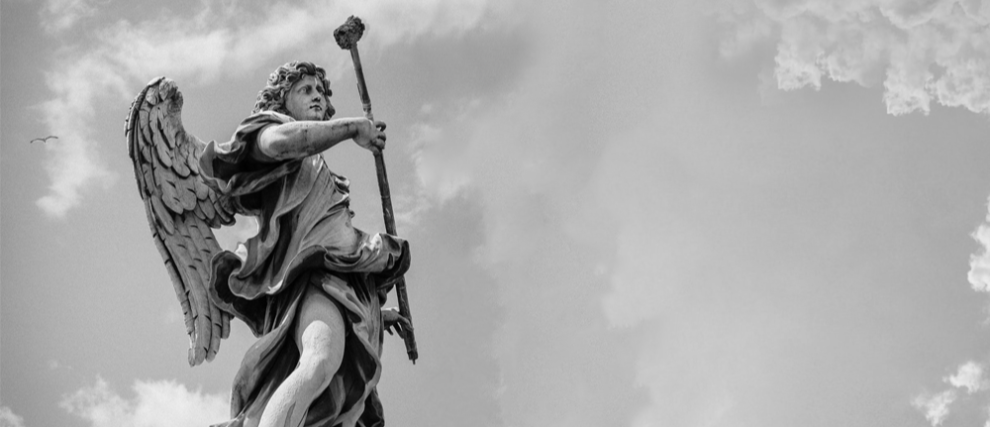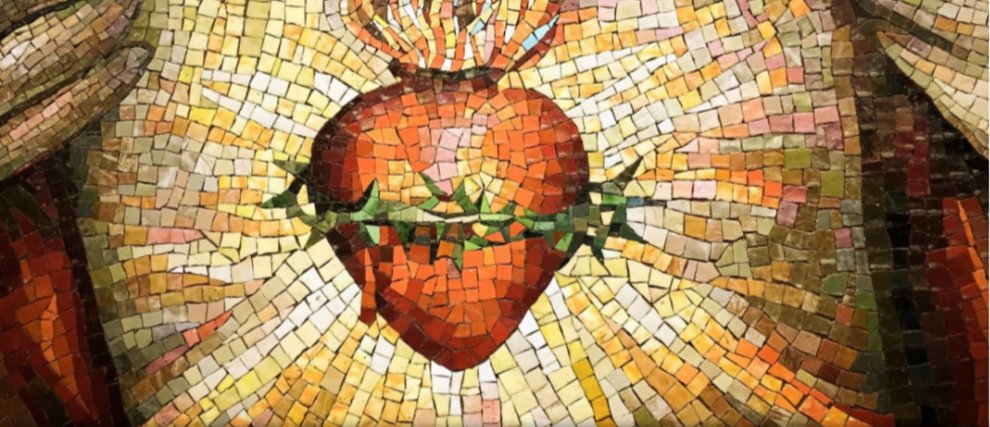Saint Thomas Aquinas
Biography of Thomas Aquinas
Thomas Aquinas was born in 1225 at the castle of Roccasecca near Aquino in Italy. Son of a noble Neapolitan family, he received his education with the Benedictines of Mount Cassin and then at the University of Naples, where he was quickly noticed for his piety and intelligence. At the age of eighteen, he decided to enter the Order of Preachers, a begging order founded by Saint Dominic. His family disapproved of this choice and decided to kidnap Thomas to keep him locked up. It was only a year later that he was finally free to live his vocation, and he became a Dominican brother in 1244. Thomas went to continue his studies in Paris, then in Cologne, where he was taught by Saint Albert the Great, another great spiritual figure of the Middle Ages. He was then nicknamed by his comrades the "great dumb ox." His teacher, however, soon recognized the exceptional talent of his pupil and predicted that "the roars of this ox will resonate throughout the universe." Gifted with brilliant intellectual abilities, Thomas in turn became professor of theology in Paris, on the Dominican pulpit. He began to write his works at that time and in 1257, became a doctor, and his fame grew and spread throughout Europe.
At the request of the popes, Thomas traveled a lot, but he dedicated most of his time to study. He passionately read the homilies on the Gospel of St Matthew by St John Chrysostom. Thomas was also a great silent thinker, living the rule of the brothers with humble obedience. During the last nine years of his life, Brother Thomas presented his thoughts in major works such as the Summa Theologica, which constituted his masterpiece.
The last months of Thomas' life were marked by a mysterious climate. At the end of 1273, he called his great friend and secretary to tell him to stop all work because he received a divine revelation during Holy Mass. He then understood that everything he had written up to that point had been a "heap of straw." Shortly afterwards, while on his way to the Grand Council of 1274 in Lyon, Thomas died at the monastery of Fossanova on March 7th, 1274. He was canonized in 1323 by Pope John XXII.
On January 28, 1369, the relics of Saint Thomas were transported to Toulouse, where they can still be venerated today. It was this date of January 28 that was chosen as the feast of Saint Thomas Aquinas. Saint Thomas was proclaimed a Doctor of the Church in 1567. In 1880, Pope Leo XIII, a great amateur of Saint Thomas and promoter of Thomist studies, declared him Patron of Catholic schools and universities.
Discover other holy doctors of the Church: Augustine of Hippo, Gregory of Nazianzus, Basil of Cesaree, Jean Damascene, Saint Bonaventure, Saint Alphonsus of Liguori, etc.
Saint Thomas Aquinas, spiritual master
John Paul II recalled in an encyclical that Saint Thomas Aquinas "has always rightly been proposed by the Church as a master of thought and the model of a correct way of doing theology" and the Second Vatican Council expressly recommends the study of his thought. After Saint Augustine, Thomas Aquinas is mentioned more than any other in the Catechism of the Catholic Church, 61 times in total. Benedict XVI rightly reminds us that “the depth of Saint Thomas Aquinas' thought stems from his living faith and fervent piety”; Saint Thomas had, in particular, a great devotion to the Eucharist.
Philosophy of Saint Thomas Aquinas: thoughts and quotations
St Thomas' philosophical thought is built on his deep knowledge of Aristotle and the Greek masters, as well as on a deep command of the Bible and the Fathers of the Church. At the time, the pre-Christian thought of Aristotle had just been rediscovered. It attracted readers by its luminous philosophy, but also aroused the distrust of Christians with regard to this pagan thought. Saint Thomas knew how to make a balanced synthesis between Aristotle and Saint Augustine, reconciling reason and faith. St Thomas showed that there is a natural harmony between Christian faith and reason. His new way of thinking would prove quite fertile and form the culture of the following centuries. Here are some beautiful quotations from Saint Thomas Aquinas that express his philosophy:
- The search for the truth: "The purpose of philosophy is not to know what men have thought, but what is the truth of things."
- Constant reference to nature: "What is cut off from the perfection of creatures, it is to the very perfection of God that it is cut off."
- The faculties of the human being are elevated in Divine Grace: “Grace does not make nature disappear but finishes it.” This is a very important idea of Saint Thomas, for whom divine Grace accompanies ethical commitment. However, even without this grace, all men are called to recognize the natural law and to draw inspiration from it to form just laws.
Work of Saint Thomas Aquinas
The literary production of Saint Thomas Aquinas is of immense wealth, it includes in particular:
- Comments on the Holy Scriptures.
- Comments on Aristotle's writings.
- Systematic works such as the grand Summa Theologica, or the Summa Against the Gentiles, a work written for Dominican missionaries to help them fight against heresies as well as against Jews and Muslims.
- Treaties and speeches on various subjects.
Prayer of Saint Thomas Aquinas
Praying and discovering Saint Thomas Aquinas with Hozana
Prayer Before Studying by Saint Thomas Aquinas
Ineffable Creator, You are the true source of light and wisdom.
Deign to pour out your light upon the darkness of my understanding; cast out from me the darkness of sin and ignorance.
Give me: penetration to understand, memory to remember, method and ease to learn, lucidity to interpret, abundant grace to express myself, help the beginning of my work, lead in progress, crown in the end, through Jesus Christ our Lord.
Amen. Amen.
Prayer composed and recited by Saint Thomas Aquinas
Please grant me a will that seeks you, wisdom that finds you, a life that pleases you, a perseverance that awaits you with patience and a confidence that manages in the end to possess you.

